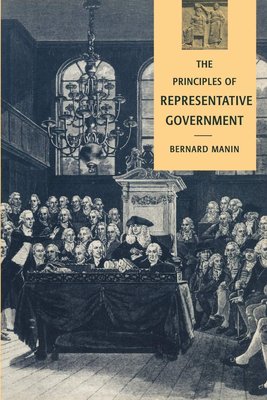Book description
The thesis of this original and provocative book is that representative government should be understood as a combination of democratic and undemocratic elements. Challenging the conventionally held views on the subject, Professor Manin reminds us that while today representative institutions and democracy appear as virtually indistinguishable, when representative government was first established in Europe and America, it was designed in opposition to democracy proper. The author identifies the essential features of democratic institutions and reviews the history of their application.
Recommended on 1 episode:
A Radical Proposal for True Democracy
One thing I want to do on this show is give space to truly radical ideas, to expand the boundaries of our political and moral imaginations. And Hélène Landemore, a political scientist at Yale, has one of those ideas. She calls it “open democracy,” and the premise is simple: What we call democracy is not very democratic.
The role of the people is confined to elections, to choosing the elites who will represent us. Landemore argues that our political thinking is stuck in “18th-century epistemologies and technologies.” It is not enough.
We’ve learned much in the last few hundred years about random sampling, about the benefits of cognitively diverse groups, about the ways elections are captured by those with the most social and financial capital. Landemore wants to take what we’ve learned and build a new vision of democracy atop it — one in which we let groups of randomly selected citizens actually deliberate and govern. One in which we trust deliberation and diversity, not elections and political parties, to shape our ideas and to restrain our worst impulses.
This is a challenging idea. I don’t know that it would work. But it’s a provocation worth wrestling with, particularly at this moment, when our ideas about democracy have so far outpaced the thin, corrupted ways in which we practice it.
You’ve heard people say, “We’re a republic, not a democracy.” Landemore’s challenge is this: What if we were a democracy? We honor those who came before us for radically reimagining who could govern, and how politics could work. But did they really discover the terminal state of democracy? Or are there bold steps left for us to take?
Books recommended:






